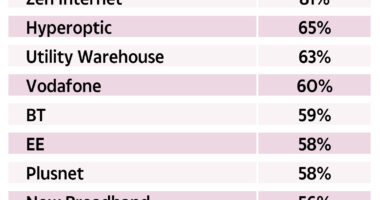


Shock: David Norton has had to put his retirement plans on hold
David Norton has always been reassured that he is on track for a happy retirement when he checks his annual pension statement. But when this year’s statement arrived in the post from his pension company Aegon in February he was horrified.
More than £75,000 had been wiped off the value of his pot in one year, sending it plummeting by 30 per cent. One year away from retirement, a fall of this scale put David’s well-laid plans in jeopardy.
Nervous about his nest egg, the 65-year-old home fittings sales manager has been checking his pension each month ever since. To his horror, it has fallen further.
His pension pot, which sat at £252,000 just 18 months ago, has dropped to £163,000 this month.
David, who is married and lives in London, says: ‘I had a stone in my stomach when I first saw the value, I can’t understand how it’s lost so much.
‘In the past it has always steadily increased. It would make sense if it was all invested in one stock, but I’m supposed to be in the safest fund possible.’
At 64, David’s pension pot was automatically transferred by his pension provider Aegon into a fund designed to keep his money safe in low-risk investments. The Scottish Equitable Retirement fund is 75 per cent invested in UK bonds with the remaining 25 per cent in cash-like assets.
But far from protecting his hard-earned savings, the fund has dramatically dropped in value. Over the past three years, the fund has lost 40.50 per cent of its value, according to fund scrutineer Trustnet.
This means more than £450 million has been wiped off the value of savers’ pensions in this fund alone, with £680 million still invested today.
Hundreds of thousands of workers have lost an average 40 per cent over the past two years in similar so-called ‘lifestyling’ bond funds meant to reduce the risk of a stock-market shock as workers approach retirement, according to Laith Khalaf of stockbroker AJ Bell.
More than £6 billion has been wiped from the value of older workers’ pensions as an estimated £15 billion in workplace schemes was invested in these funds as of 18 months ago, according to AJ Bell.
For example, the Aviva Pension Pre-retirement Fixed Interest pension fund has lost 33.4 per cent over the past three years. The Vanguard LifeStrategy fund, which invests just 20 per cent in stocks, is down 12.7 per cent in that time. Meanwhile, Clerical Medical’s Retirement Protection Pension, which invests almost exclusively in UK Government bonds, has lost a staggering 52.3 per cent.
Those closest to retirement have been hit hardest. Between five and ten years before your retirement, your pension provider will often start moving your funds from company shares – which are perceived as higher risk but with a greater chance of higher returns – to bonds, which are seen as lower risk.
This is done with the stated aim of protecting you from any sudden shocks in the stock market just before you retire. However, in recent months many of these funds that are designed to be safe have proven anything but.
Why pension funds plummeted in value
Global chaos in the bond market over the past year has led to sharp falls in the value of pensions that could significantly affect the retirement of hundreds of thousands.
The value of British and US government bonds has been plummeting as a result of sharp increases in national interest rates.
Government bonds are issued for a set duration, typically five or ten years or longer, with the interest – or ‘yield’ – they pay set at a rate that is competitive at the time, but fixed for the length of the term.
When interest rates rise, bond prices tend to fall as the new bonds issued are likely to have higher yields and investors sell existing bonds with lower yields to buy better deals from newly-issued debt.
This means that the old or outstanding bonds held by pension funds are generally less attractive unless they are sold at a lower price.
Bonds also suffer when inflation rises, as the fixed income they deliver becomes less valuable. Inflation hit a four-decade high of 11.1 per cent in October last year and has remained high ever since, triggering the Bank of England’s aggressive run of interest rate rises in a bid to rein in steep price rises.
The base rate has been increased 14 times since December 2021, when the cost of borrowing stood at a record low of 0.1 per cent, to reach its current level of 5.25 per cent. Many industry experts expect rates to remain high for several years, placing sustained pressure on bond prices. This means the values of bonds could take a long time to recover, says Rebecca O’Connor, of pension provider PensionBee.
‘Bonds are meant to be the safe haven part of a portfolio, but the recent chaos means the market has gone topsy turvy,’ she says. ‘Though the stock market has been volatile, it has provided more security than supposedly safer assets.’ While bond markets have been rocked, the global stock market has risen by an impressive 35.7 per cent over the past three years.
David says he was considering retiring next year until his pension plans fell apart. He says: ‘Time is not on my side – I can’t leave all that money invested for another ten years and hope it comes good like younger workers can. But I also don’t think I can afford to retire next year any more.’
David says he is deeply disappointed in his pension provider, saying: ‘They are fund managers who are meant to be specialists at helping people with money. They charge us fees for that expertise and I trusted them to look after my money so I could live a comfortable retirement, but that’s not likely to happen any more.
‘They need to be aware of the impact their fund management is having on real lives and they really need to be accountable for it.’ Khalaf warns that Government bonds have been a ‘red hot danger zone’ for soon-to-be pensioners. He says: ‘Many investors have found themselves in a bond market nightmare through no fault of their own, as older pension plans often automatically move savers into bonds as they approach retirement.’


Falling fast: Hundreds of thousands of workers have lost an average 40 per cent over the past two years
The reason savers were moved into bonds
For decades, pension providers have moved their customers into bonds as they near their target retirement age. This was because until recently savers built up a savings pot throughout their working lives and then used it to buy an annuity when they retired, which is a product that swaps a lump sum for a guaranteed income for life.
Until a decade ago, it was compulsory for pension savers to buy an annuity or other income plan by age 75. The bigger the pot, the more generous the annuity, so the last thing you want just before buying one is a big fall in the pot’s value.
To mitigate against this, pension providers move savers into supposedly safer assets ahead of retirement. Savers who took out workplace pensions in the 1990s and 2000s, and those who paid into individual stakeholder plans in the 2000s, will have their money moved to lifestyling funds, typically five years before retirement age.
But annuities are no longer compulsory and many savers opt to keep their pensions invested throughout retirement, drawing an income as and when they need it.
Khalaf explains: ‘The problem is that for several years now very few people are buying an annuity, so this is a pretty outdated strategy.
‘UK Government bonds are often seen as a safe haven for investors, but in the past two years they have been a red hot danger zone because of rising interest rates.’
Lifestyling applies to workers with modern ‘defined contribution’ pensions, which workers have been automatically enrolled into since 2012. These pensions are like a pot of cash you and your employer pay into each year, to which you gain access from age 55 of 57.
People in these schemes shoulder all the investment risk when building a retirement pot. Unless workers actively choose funds to invest in, they are automatically shoehorned into a one-size-fits-all pension chosen by their employer.
An Aegon spokesman said: ‘We understand some customers may be concerned about the recent performance of the Scottish Equitable Retirement fund.
‘This is largely driven by volatility in long gilt markets, which have been affected by the backdrop of rate hikes, high inflation, and political uncertainty.
‘We acknowledge this and are taking action to address it.
‘We are committed to providing customers with the best possible investment outcomes, and will continue to monitor the market and make changes as needed.
‘If your pension fund goes down in value, the amount of annuity you can buy will typically not change much as annuity rates have improved.’
… but at least annuities are now better value
One consolation for workers who have seen their pension values fall just before retirement is that the price of buying a guaranteed income has fallen.
For several years, annuities languished so low that most buyers were unlikely to get their initial investment back. But, annuity rates have soared over the past year.
A 66-year-old with a £100,000 pension pot can now buy an annuity paying an income of £7,000 a year – £174 more each year than compared to the same time last year, according to provider Legal & General. The group says that demand for annuities has soared by almost three quarters, with the number of quote enquiries rising 71 per cent since last year.
The costly lifestyling investment strategy described above was designed for those who use their pension pot to buy an annuity. These contracts exchange a cash lump sum for a guaranteed yearly income until death. They invest this way because any sharp falls in bond prices should normally be offset by a rise in annuity rates. PensionBee’s Rebecca O’Connor says: ‘You may feel you can get some of the money back through annuities at least. Remember, you don’t have to get an annuity to cover all of your retirement – it can be fixed term – and you don’t have to use your whole pot on an annuity.’
You can use a portion of your pension to purchase a guaranteed income to top up your state pension and cover the cost of your everyday essentials. The remainder can be left in a drawdown pot, which you can dip into as and when you need. If you find yourself in David Norton’s position and your pension has been caught in the crossfire of the bond market turmoil, O’Connor recommends delaying retirement where possible. ‘It’s a very good idea to put retirement off a little because the longer you are invested, the more chance you have for recovery. If you draw from your pension then you lock in that loss and it becomes real, but until you touch it, it is just paper loss.’
You can book an appointment for free impartial guidance from the Government’s pension service Pension Wise at moneyhelper.org.uk.








